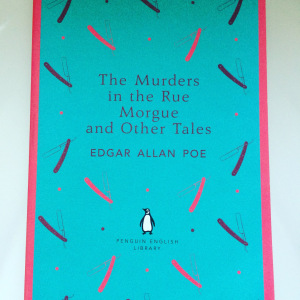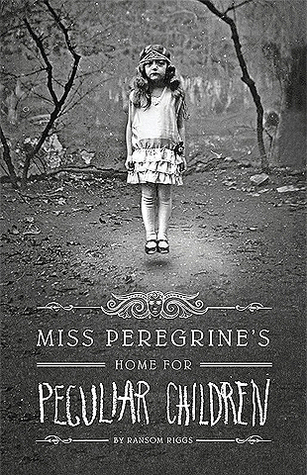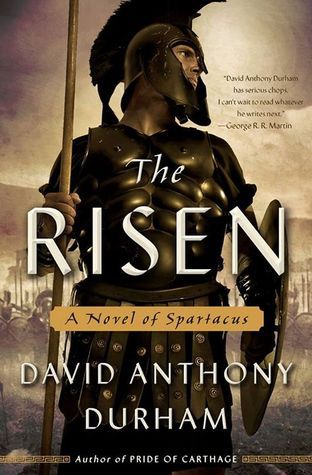 The days are getting shorter, the weathers getting colder and the jumpers are already making an appearance; do I need to say once more how much I love Autumn and Winter? After my last few posts I don’t think I really need to, but I’m saying it once more anyway! I always find my Autumn reading is very reflective of the atmosphere produced by the changing seasons and so far this month has been no exception! Once more craving a dark, Gothic and perhaps terrifying read, I decided to opt for none other than the man who is somewhat of a genius in these genres; Edgar Allen Poe. With his penchant for strange stories exploring mysteries and the macabre, he seemed like an extremely fitting option.
The days are getting shorter, the weathers getting colder and the jumpers are already making an appearance; do I need to say once more how much I love Autumn and Winter? After my last few posts I don’t think I really need to, but I’m saying it once more anyway! I always find my Autumn reading is very reflective of the atmosphere produced by the changing seasons and so far this month has been no exception! Once more craving a dark, Gothic and perhaps terrifying read, I decided to opt for none other than the man who is somewhat of a genius in these genres; Edgar Allen Poe. With his penchant for strange stories exploring mysteries and the macabre, he seemed like an extremely fitting option.
I actually studied various short stories of Poe’s when I was at University during a Gothic Fiction module. Understandably his work was incredibly suited to this genre and it was fascinating to see how he took the classic tropes and often adapted them to his own needs. When my boyfriend bought me the gorgeous Penguin English Library edition I was thrilled, and I decided it was finally time to pick it. Now, this edition, titled The Murders In The Rue Morgue and Other Tales is a diverse collection of some of Poe’s short stories. It is filled to the brim with many of the iconic tales which Poe created, but also brings us some of his stories which are perhaps lesser known.
I think this is one of the things I enjoy most about Poe. The actual plot of his stories can be widely diverse, yet they all still contain this shared atmosphere about them which is undeniable telling of Poe’s work. Within this edition we have tales of love and death, first person murder perspectives, tales of disease and madness, detectives, treasure hunts and so much more, yet they all still share some sort of similar themes. A major example of this within Poe’s works is of course the use of the Gothic, combined with terror and horror. Many of these stories are narrated in the Gothic trope of first person, often using letters and manuscripts which attempt to convince of us their authenticity and the true horrors of certain events. Yet because of this very personalised approach, they can also be extremely biased and as such unreliable through their narrators. I really enjoyed this tension in his work and the ideas it arouses.
Poe also explored other tropes such as the idea of the doppelganger, the uncanny, the sublime, secrets of the past, crumbling threatening buildings and damsels in ‘distress’. Through these tropes he is able to keep the plot of his short stories interesting, examining the darker psyche which lies within the human mind. He creates an excellent tension between the terror you feel in anticipation of what is to come, and the horror at the reality of a situation. He doesn’t need to be explicit to conjure a certain atmosphere or feeling, but even when he is explicit it only heightens his work as opposed to cheapening it. Likewise, Poe uses a lot of foreshadowing within these stories to create an intriguing and sinister mood. We often have a narrator reflecting on events in a way which enables us to understand something horrific is approaching and about to take place. This is specifically true of his story ‘Leigia’.
Despite this, not all of his works are necessarily Gothic or scary. There are stories in here which are quite funny, some which are very satirical, and some which explore scientific advancements. This is most noticeable in ‘The Man That Was Used Up, a tale which looks at how we can distinguish man from machine, whilst also providing a social commentary on war and the way in which an individual can be reduced to their injuries. All the same, these stories are still undeniably Poe in style and in the way they look at the strange and the unnatural.
What I will say about Poe is that his writing can be incredibly dense and quite intellectual at times. He’s not always the easiest to understand, especially at the start of some of the stories in this collection, and does sometimes go off on strange tangents. Where this is the case his writing does usually ease up and become more fluid and manageable as the story gets underway, but I think there is the potential for someone to be put of classic literature if they chose the wrong story to start with.
Something else which I think might infuriate some people is the type of endings which the author uses. In many of these stories we never really get a full sense of a conclusion, with endings which are often left to our own individual interpretations of his work. Personally, this didn’t really both me. It’s a classic trope within Gothic/horror/speculative and is to be expected from these kinds of stories. There is often something more creepy and unsettling in leaving the answers to our own imaginations, plying us with enough knowledge to suggest certain things but ultimately letting us work our own selves up through the ambiguity. If this isn’t your thing then perhaps starting with his detective novels such as ‘The Murders In The Rue Morgue’ would be a more satisfying place to start.
I didn’t enjoy or love all of the stories within this collection. I found some of them quite forgettable and some of them slightly boring. The ones I did enjoy however really are superb works of fiction, and it is easy to see why Poe has become such an iconic figure. ‘The Tell Take Heart’ in particular is one of my favourite stories by Poe, and indeed one of my favourite short stories ever. How he is able to capture such a defined and intensely morbid mood within such a few short pages is truly a skill to be envied. Even so, skill aside, it is an incredibly memorable piece because of its plot, with the piece actually being narrated by the murderer.
If you’re looking for short little tales to get you in the mood for the coming Halloween or just to produce a fitting atmosphere in general, then I would highly recommend discovering some of Poe’s stories. They really do just heighten the overall Autumn experience and are brilliant to get cosy and give yourself a little thrill!
Publisher: Penguin
Rating: 3*/5*
Advertisements Share this:





